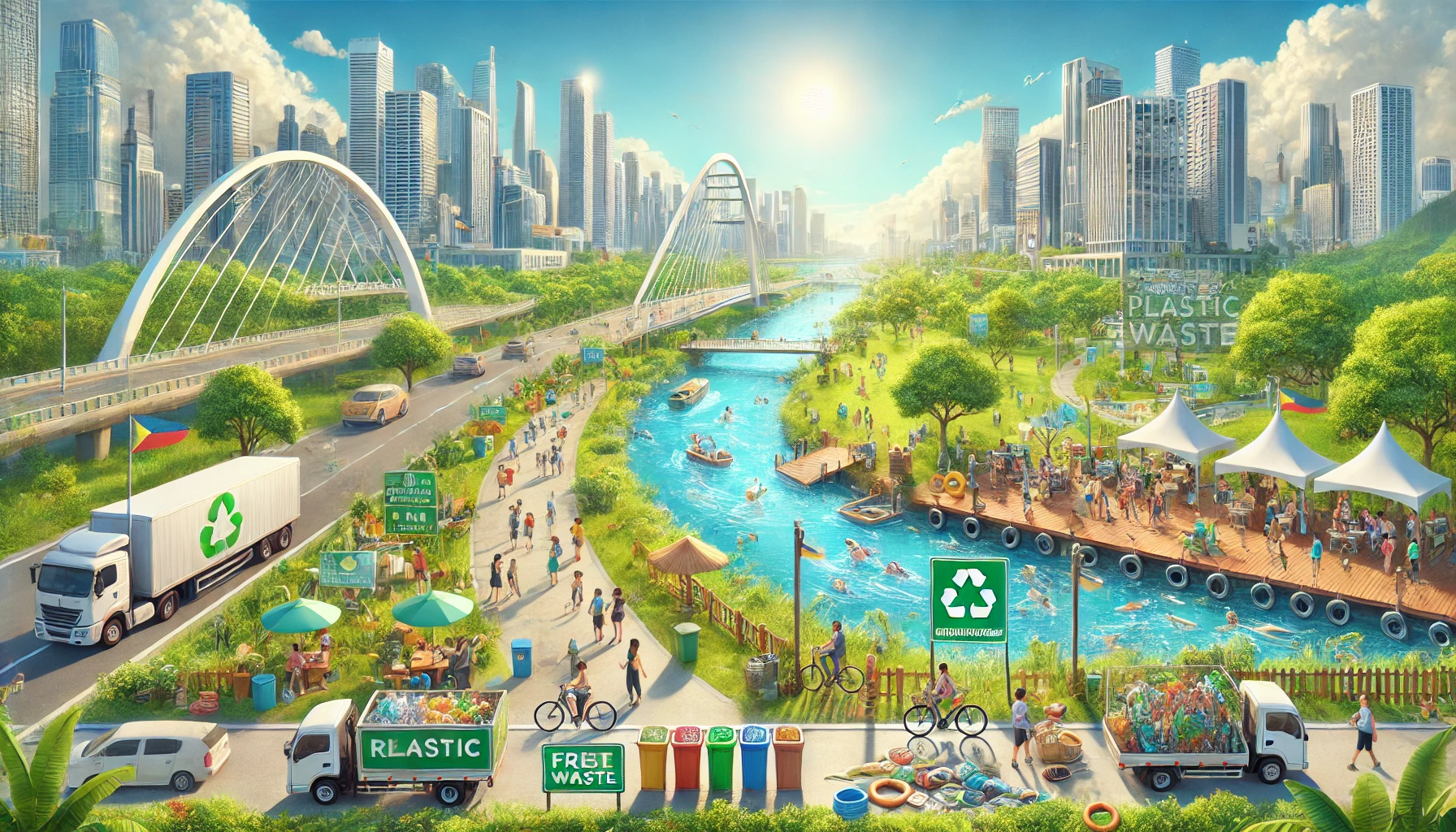Paving the Way to a Plastic-Free Philippines by 2040: The World Bank’s Strategic Roadmap
The World Bank's roadmap for the Philippines aims to drastically reduce plastic waste and single-use plastics by 2040 through phased actions involving enhanced regulations, infrastructure improvements, and stakeholder collaboration. Key strategies focus on closing plastic leakage pathways, enabling recycling, and fostering a circular economy.

- Country:
- Philippines
The World Bank has developed a comprehensive roadmap to address the escalating plastic waste crisis in the Philippines, emphasizing the reduction of single-use plastics (SUPs). This issue has reached critical levels, with Filipinos using over 163 million plastic sachets, 48 million shopping bags, and 45 million thin-film bags daily as of 2019. The country generates approximately 1.7 million metric tons of plastic waste annually, a significant portion of which ends up in landfills, dumpsites, or is openly burned, leading to substantial environmental and health hazards. A considerable amount of this waste also leaks into waterways and eventually the ocean, exacerbating marine pollution. Despite the Philippine government’s efforts to combat this problem through legislative measures such as the Ecological Solid Waste Management Act of 2000 and the Extended Producer Responsibility Act of 2022, the issue of plastic pollution persists. While many local government units (LGUs) have passed ordinances to regulate plastic use, enforcement remains inconsistent, and the infrastructure for effective waste management is lacking. The National Plan of Action for the Prevention, Reduction, and Management of Marine Litter, which aims for zero waste in Philippine waters by 2040, underscores the urgency and scale of the problem.
A Phased Approach to a Plastic-Free Future
The World Bank’s roadmap outlines a phased, evidence-based approach involving multiple stakeholders, including government agencies, the private sector, and civil society. The plan identifies four primary barriers to effective plastic waste management: policy and institutional gaps, analytical and infrastructure deficiencies, financial and funding shortfalls, and data and information limitations. To address these barriers, the roadmap proposes several key actions, such as strengthening regulatory frameworks, improving waste management infrastructure, integrating the informal waste sector, and enhancing data collection and transparency.
Short-Term Goals: Closing Leakage Pathways by 2028
In the short term, the roadmap aims to close plastic leakage pathways by 2028. This involves enforcing existing laws, increasing the waste management capacity of LGUs, conducting audits of LGU waste systems to identify areas for improvement, and enacting complementary legislation to support these efforts. Additionally, the roadmap emphasizes the need for comprehensive training programs for waste management staff to improve the performance of existing facilities. By enhancing the regulatory framework and ensuring rigorous enforcement, the roadmap seeks to reduce the use of non-recyclable SUPs and improve overall waste management practices.
Medium-Term Goals: Enabling Plastic Recycling by 2034
Medium-term goals of the roadmap aim to enable plastic recycling by 2034. This includes building the capacity of LGUs through staff training and the establishment of new material recovery facilities (MRFs), recycling facilities, and regional sanitary landfills. The roadmap also calls for the integration of the informal waste sector into formal waste management systems. Informal waste workers, who play a crucial role in recovering and recycling waste, often operate under challenging conditions without adequate support or recognition. By integrating these workers into the formal system, the roadmap aims to enhance their contributions while ensuring better working conditions and increased efficiency in waste management. Furthermore, the roadmap proposes developing national standards for the quality of recycled plastics and establishing a certification scheme for plastic recyclers to improve the marketability and usability of recycled materials.
Long-Term Vision: Circular Economy by 2040
Long-term actions target managing plastic demand and designing products for circularity by 2040. This involves promoting eco-design and eco-labeling, encouraging the development of sustainable alternatives to SUPs, and supporting green public procurement practices. The roadmap also emphasizes the importance of private sector engagement in plastic reduction and waste management efforts. By defining standards and guidelines for the implementation of the Extended Producer Responsibility (EPR) Law and assisting micro, small, and medium enterprises in participating in EPR programs, the roadmap seeks to foster a collaborative approach to plastic waste management.
The roadmap highlights the critical role of LGUs in waste management, particularly in urban areas where the majority of waste is generated. It underscores the need for better integration and support for the informal sector, which is instrumental in the recycling process. Financing remains a significant challenge, with a need for more effective cost-recovery mechanisms and improved access to funding for waste management projects. The roadmap also calls for the development of a national database on recycling and solid waste management to enhance data transparency and support informed decision-making.
By addressing these issues systematically, the roadmap aims to significantly reduce plastic pollution and help the Philippines transition to a circular economy. The goal is ambitious but attainable with coordinated efforts from all sectors of society. Through the effective collaboration of national government agencies, local governments, the private sector, informal workers, nongovernmental organizations, and consumers, the roadmap will be a powerful tool for achieving a future free from plastic waste pollution.
- FIRST PUBLISHED IN:
- Devdiscourse










